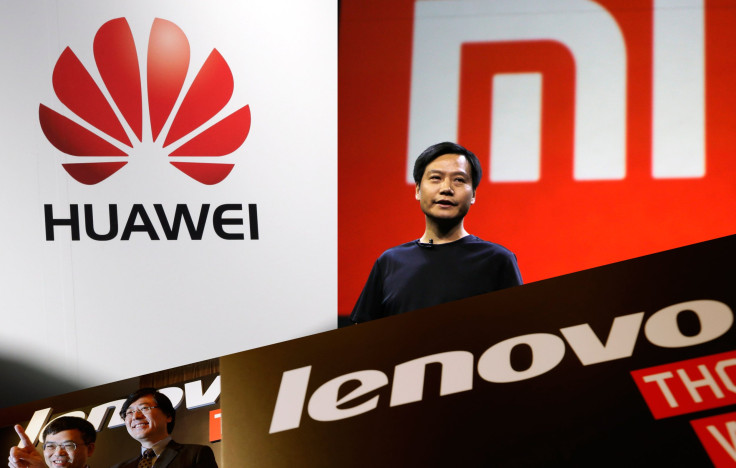Meet Xiaomi, Lenovo, Huawei: The Chinese Handset Makers Driving Apple And Samsung Nuts

Chinese manufacturers continue to make significant gains in the global smartphone market, eating away at the market share of mobile giants Samsung Electronics Co. (KRX:005930) and Apple Inc. (NASDAQ:AAPL). These ambitious Chinese companies have produced millions of handsets, fueling more competition for the South Korean and Cupertino, California, technology giants.
With Samsung's mobile market share dropping seven percent and net income falling 20 percent to 6.25 trillion won ($6.1 billion) in the second quarter, it’s clear that the competition's presence in the market has had a significant effect on the No. 1 global handset maker. So who are these Chinese companies poised to consume the global smartphone market?
Lenovo
Originally founded in 1984 as Legend in Beijing, Lenovo (HKSE:992) has grown to a behemoth of a tech manufacturer that builds and sells PCs, tablets, notebooks, servers and other devices. While it's well known for its line of ThinkPad notebooks, Lenovo has also been making gains in the past year in another market segment -- smartphones.
According to a report from Strategy Analytics, Lenovo grew its mobile market share in the second quarter to 5.4 percent and 15.8 million units shipped, up from 4.8 percent and 11.3 million units shipped in the same period a year earlier. While Lenovo continues to make gains in China with its smartphones, including its Vibe and K series devices, it hasn’t made much of a splash outside of the country.
That could soon change as Lenovo is set to purchase Motorola Mobility, Google Inc.’s (NASDAQ:GOOG) handset division, for $2.9 billion. If Lenovo could duplicate the success it found with the purchase and growth of IBM’s ThinkPad notebook line with Motorola Mobility, it could find itself significantly growing its global market share in the near future.
Huawei
Huawei has been in business since 1987, focusing on telecommunications and networking equipment. But, the Shenzhen company has only manufactured Android smartphones since 2009. Its market share has since grown to 6.8 percent of the smartphone market, making it the third-largest smartphone maker the world. In that same period, Huawei nearly doubled its device shipments to 20.1 million units.
With its flagship Android-based Ascend P7 and other mobile offerings, Huawei appeals to the mid- and high-end smartphone market. According to the Wall Street Journal, Huawei plans to boost its growth in emerging markets such as Latin America and the Middle East. As of Tuesday, Huawei said it has sold two million units of the Ascend P7 smartphone.
Xiaomi
While Lenovo and Huawei continue to hold their share of the global smartphone market, Xiaomi has taken China by storm. The Beijing technology company established in 2010 makes a variety of products such as routers and set-top boxes. But Xiaomi’s smartphones are among the most popular, with some even selling out in seconds, according to the Economic Times.
In only a year, Xiaomi more than doubled its smartphone market share from 1.8 percent to 5.1 percent, while nearly quadrupling its shipments at 15.1 million units to take the spot as the fifth-largest smartphone manufacturer. Despite accusations that Xiaomi and its CEO, billionaire Lei Jun, are merely copying Apple design philosophy, it has continued to make a mark on the Chinese market with various devices such as the Mi 3 and the Redmi Note.
While Xiaomi sells its devices through Asian countries such as Taiwan and the Philippines, it plans to expand to 10 additional countries, including Mexico and India in the near future, according to BusinessWeek.
© Copyright IBTimes 2024. All rights reserved.





















